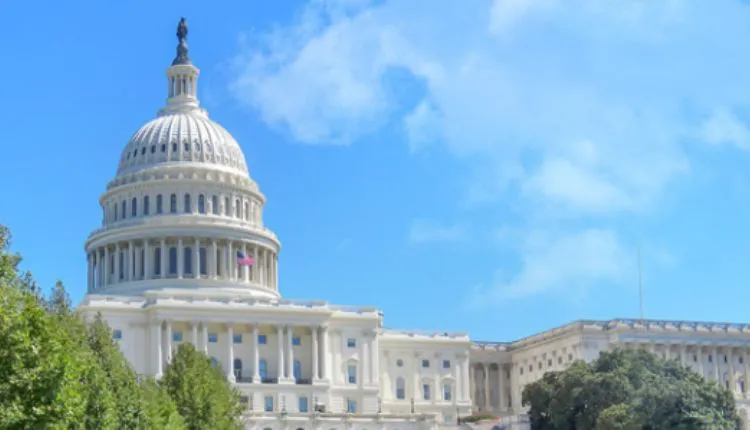
US FED Government Contracts: An Overview
The United States Federal Government is the largest single purchaser of goods and services in the world, with an annual procurement budget that exceeds $500 billion. Federal contracts are awarded to companies for a wide range of goods and services, from weapons systems and IT services to construction projects and janitorial services. The procurement process is regulated by the Federal Acquisition Regulation (FAR) to ensure that it is conducted in a fair and open manner.
The Procurement Process
The procurement process begins with the identification of a need for a particular good or service. Once the need has been identified, the government will typically issue a request for proposals (RFP) that outlines the requirements for the goods or services being sought. Companies can then submit proposals in response to the RFP. The government will then evaluate the proposals, typically based on factors such as price, technical capability, and past performance. After the evaluation, the government will typically award the contract to the company that submitted the best proposal.
Procurement Process:
Step 0: Needs Recognition.
Step 1: Purchase Requisition.
Step 2: Requisition review.
Step 3: Solicitation process.
Step 4: Evaluation and contract.
Step 5: Order management.
Step 6: Invoice approvals and disputes.
Step 7: Record Keeping.
Stages of Procurement
Stage 1: Identify a need for products and/or services. …
Stage 2: Create and submit a purchase request. …
Stage 3: Evaluate and select suppliers/vendors. …
Stage 4: Negotiate the terms of a contract with the selected supplier. …
Stage 5: Finalize a purchase order
Types of Contracts
There are several different types of contracts that can be awarded by the US FED Government contracts. The most common types include:
Firm-Fixed Price Contracts:
These contracts are used for goods and services that can be clearly defined and for which a fixed price can be agreed upon in advance.
Cost-Reimbursement Contracts: These contracts are used when the cost of goods or services can’t be determined in advance, or when there is a high degree of risk involved.
Time-and-Materials Contracts:
These contracts are used when the government needs goods or services on a non-fixed basis.
Indefinite-Delivery Contracts:
These contracts are used when the government needs goods or services on an ongoing basis.
Businesses Eligible for Contracts
There are also several different types of businesses that can win contracts, the set-aside program is in place to ensure that small businesses, veteran-owned businesses, service-disabled veteran-owned businesses, HUBZone small businesses, small disadvantaged businesses, and women-owned small businesses have a fair shot at winning contracts.
Contractor Performance Assessment Reporting System (CPARS)
The Federal government also has a rating system for contractors, the Contractor Performance Assessment Reporting System (CPARS) evaluates the performance of contractors working on federal contracts. The legal and technical approach is used to evaluate the performance of both prime and subcontractors, and the ratings can be used to determine whether a contractor is eligible for future contracts.
Laws and Regulations
FAR compliance is a process for ensuring that all federal contractors comply with the Federal Acquisition Regulation (FAR). The FAR was established to ensure that government agencies receive quality goods and services at fair prices.
The Federal Acquisition Regulation is the principal set of rules regarding Government procurement in the United States, and is codified at Chapter 1 of Title 48 of the Code of Federal Regulations, 48 CFR 1. It covers many of the contracts issued by the US military and NASA, as well as US civilian federal agencies
In addition to the FAR, there are other laws and regulations that govern federal procurement. These include the Competition in Contracting Act, which requires that procurement be conducted in a manner that promotes competition, and the Truth in Negotiations Act, which requires that contractors provide the government with cost and pricing data.
Optimizing Business Outcomes with Government Contract Solutions
Government contracts offer a range of solutions to both public and private sector organizations, helping them to optimize their business outcomes while minimizing their risks. Through a variety of federal, state, and local government contracts, organizations can gain access to a wide range of services, products, and solutions that can help them to achieve their operational, financial, and strategic goals.
From IT services and equipment to staffing and construction, government contracts provide access to a variety of resources that can help organizations to streamline operations and improve efficiency. In addition, government contracts provide an opportunity to access qualified professionals and resources at competitive prices.
One of the primary benefits of government contracts is the ability to minimize risk. Government contracts require strict compliance with regulations and standards, which can provide organizations with greater assurance that the services and products they are receiving meet their needs. Additionally, government contracts often provide organizations with access to liability protection and dispute resolution services, which can help them to protect their assets and interests.
Finally, government contracts provide organizations with access to a variety of resources and services that can help them to maximize their performance and success. From specialized training and technical support to research and development, government contracts can provide organizations with a wide range of resources and services that can help them to optimize their operations, improve their competitive advantage, and achieve their business goals.
In sum, government contracts offer a range of solutions to both public and private sector organizations, helping them to optimize their business outcomes while minimizing their risks. By taking advantage of the resources and services available through government contracts, organizations can gain access to the solutions they need to improve their performance and success.
Office of the Inspector General (OIG)
The Federal Government also has an Office of the Inspector General (OIG) that is responsible for investigating fraud, waste, and abuse in the procurement process. The OIG can take a range of actions, including suspension or debarment of contractors, fines, and criminal prosecutions.
Conclusion
US Federal government is the largest customer in the world. It buys all types of products and services — in both large and small quantities — and it’s required by law to consider buying from small businesses.
The government wants to buy from small businesses for several reasons, including:
- To ensure that large businesses don’t “muscle out” small businesses
- To gain access to the new ideas that small businesses provide
- To support small businesses as engines of economic development and job creation
- To offer opportunities to disadvantaged socio-economic groups
The government also has a set-aside program and a rating system to ensure that small businesses and disadvantaged groups have a fair shot at winning contracts.
Dynamic Contracts Consultants LLC provides US Federal / State Government contract solutions to private and public sector organizations, helping them to organize their business outcomes and minimize their risks.




